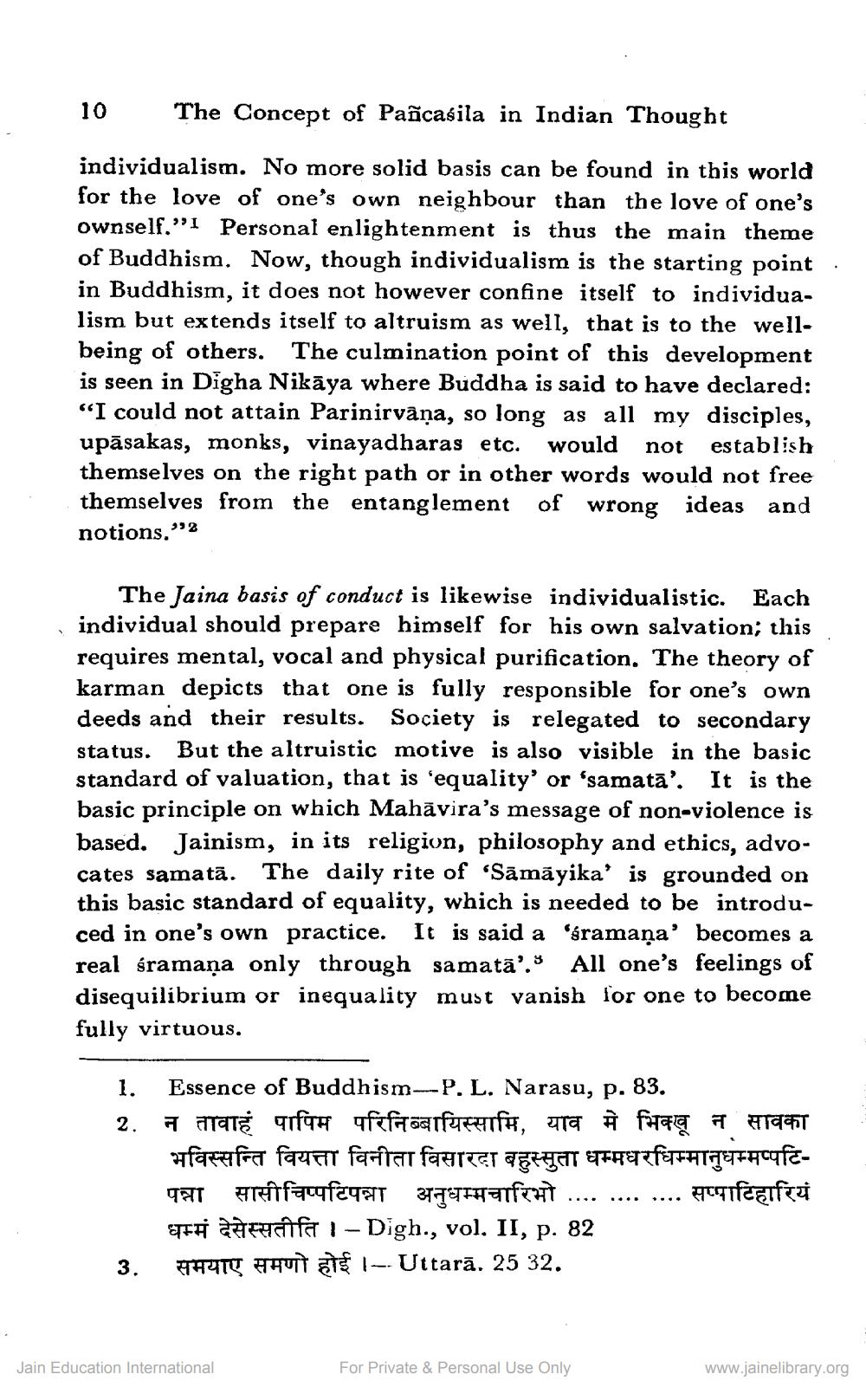________________
10
The Concept of Pañcasila in Indian Thought
individualism. No more solid basis can be found in this world for the love of one's own neighbour than the love of one's ownself.”I Personal enlightenment is thus the main theme of Buddhism. Now, though individualism is the starting point in Buddhism, it does not however confine itself to individualism but extends itself to altruism as well, that is to the wellbeing of others. The culmination point of this development is seen in Digha Nikāya where Buddha is said to have declared: “I could not attain Parinirvana, so long as all my disciples, upāsakas, monks, vinayadharas etc. would not establish themselves on the right path or in other words would not free themselves from the entanglement of wrong ideas and notions."
The Jaina basis of conduct is likewise individualistic. Each individual should prepare himself for his own salvation; this requires mental, vocal and physical purification. The theory of karman depicts that one is fully responsible for one's own deeds and their results. Society is relegated to secondary status. But the altruistic motive is also visible in the basic standard of valuation, that is 'equality' or 'samatā'. It is the basic principle on which Mahāvira's message of non-violence is based. Jainism, in its religion, philosophy and ethics, advocates samatā. The daily rite of 'Sāmāyika' is grounded on this basic standard of equality, which is needed to be introduced in one's own practice. It is said a 'sramaņa' becomes a real śramana only through samatā'.* All one's feelings of disequilibrium or inequality must vanish for one to become fully virtuous.
1. Essence of Buddhism---P. L. Narasu, p. 83. 2. न तावाहं पापिम परिनिब्बायिस्सामि, याव मे भिक्खू न सावका
भविस्सन्ति वियत्ता विनीता विसारदा बहुस्सुता धम्मधरधिम्मानुधम्मप्पटिqat Arifafaqat 37TETTHETH ........ .... Actifeaftei
ETER far I - Digh., vol. II, p. 82 3. ATV #RUIT - Uttarā. 25 32.
Jain Education International
For Private & Personal Use Only
www.jainelibrary.org




